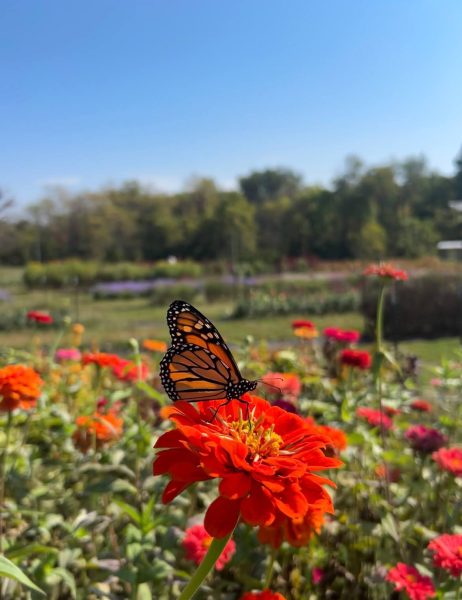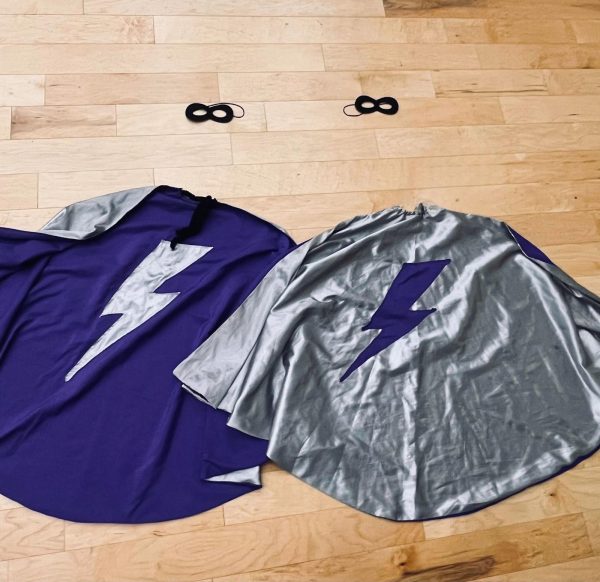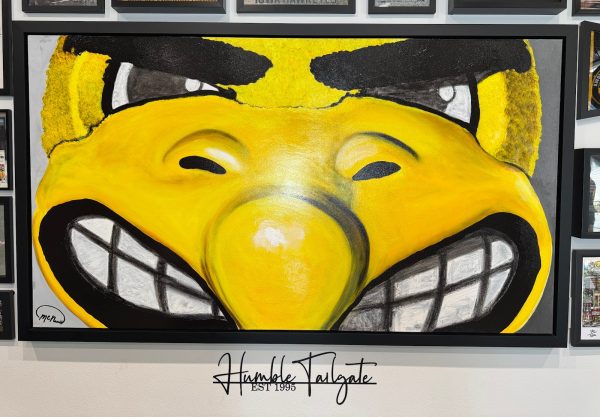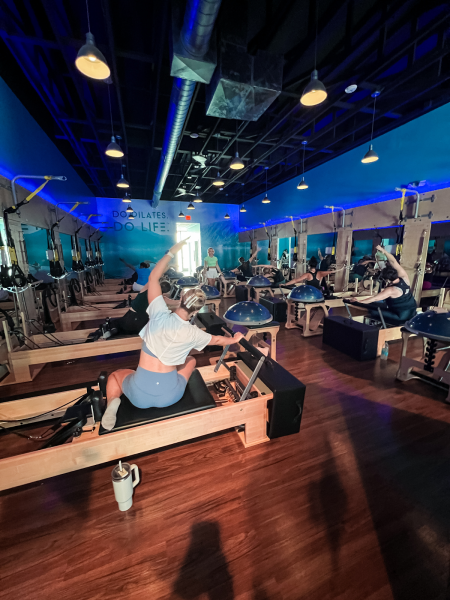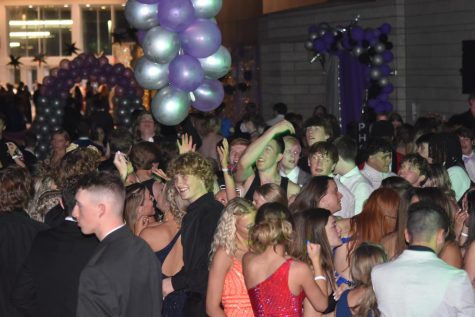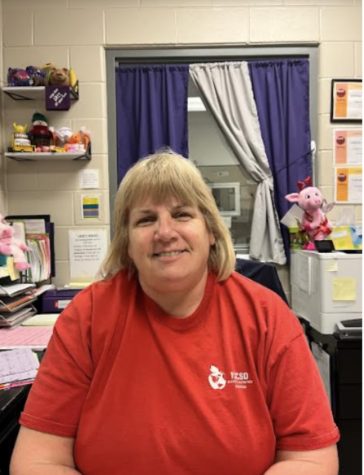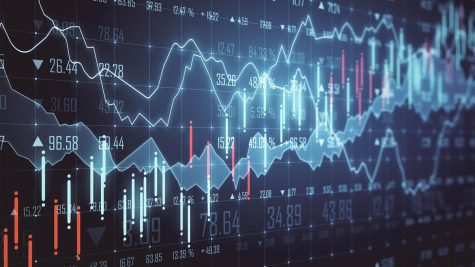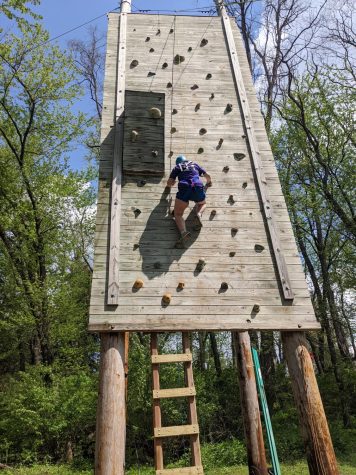Does Social Media Fuel Disordered Eating?
We use social media everyday, but how does it affect us?
Max Van-Orden (courtesy of Alaina Wilson)
Alaina Wilson posing in front of mountains on her recent trip to Colorado.
Everyday, teens spend hour after hour on social media. Whether it’s to catch up with friends, post a new selfie, or join the latest TikTok trend, they’re all the same, watching other people through screens. We as people tend to compare ourselves to those around us, but it’s only exacerbated when we have an array of people we can see at any time of the day. With so much time spent watching others, one has to wonder- how does it affect yourself? If you’re reading this, chances are you have some form of social media. And if you’re like many of us, you spend far too much time on it.![]()
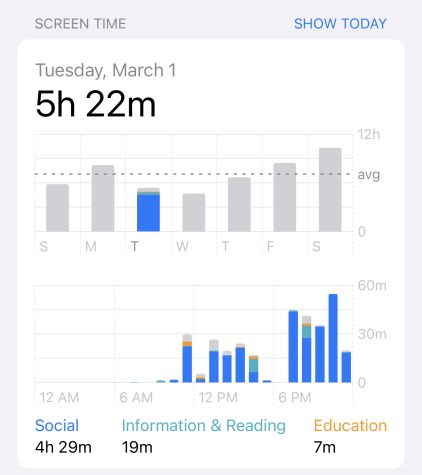
But have you ever taken a step back to try and see the effect it has on you? How does it make you feel about others? How does it make you feel about yourself? If you do take a break and evaluate these social media platforms, you may realize how much social media impacts how you and others feel. And most of the time, it’s insecure. It may be about whether we look good enough or have the newest clothes or the whitest teeth, but at the end of the day, it’s all the same: a game of comparisons and competition.
We’ve all heard that social media is fake, and that you shouldn’t compare yourself to others on the web. Adults tell us that it’s only a glimpse of someone’s life, a sliver of what they choose to let the public eye see. But the majority of the time, people tend to forget that. And how can you blame them? When you see a person with what looks like a perfect life, how can you not compare yourself to them? It’s hard. That’s the struggle that many teens and even adults face today. How are we supposed to feel good about ourselves when there’s always someone who looks “better” than us? The answer is, we don’t. More often than not, we let ourselves get caught up comparing ourselves to others on social media. And sooner or later, those comparisons tend to consume our thoughts, planting insecurities in our head like “am I skinny enough?” and “maybe I need to lose a few pounds- then I’ll feel good.” These thoughts can lead teens towards developing unhealthy eating habits and sometimes even eating disorders- which can be detrimental to their health. So, can social media actually cause eating disorders?
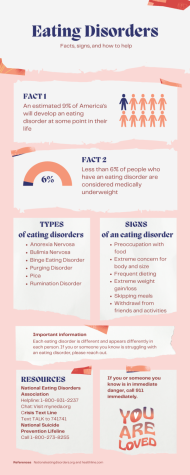
The answer isn’t a simple yes or no. Eating disorders can occur for a multitude of reasons ranging from the environment you’re in to mental illness within teens and adults. There are also many different types of eating disorders, with the most common being Anorexia Nervosa, Bulimia Nervosa, and Binge-Eating. Each disorder has different characteristics, but they all cause serious harm to the body. For many struggling with eating disorders, it starts out with a poor self-image, and spirals from there.
Everyone has insecurities, it’s part of human nature. But for lots of teens, social media tends to increase these insecurities. Marina Santos, sophomore, shared her struggles with body image and social media.
“A lot of times, I see someone really attractive on social media and I can’t help but compare myself to them.” she said. On any given day, Santos will spend around three to four hours on social media.
“…it’s [social media is] the easiest way I have to communicate with my friends and family.” Santos explained. She addressed that even though there are some positive aspects to social media, there are also a lot of negative aspects too.
“I think social media has caused me a lot of problems,” she remarked. She started using social media when she was around twelve years old.
“I was exposed to a lot of unrealistic beauty standards,” Santos recalled. “I think edited images encourage people to compare themselves to impossible beauty standards, and that can result in people, including me, to attempt to look like the people we see online.”
Overall, social media has positively impacted Santos in some ways, like helping her to keep in touch with friends, but hurt her in other ways such as becoming an outlet for new insecurities.
Another way that social media affects teens eating is how, what, and when they eat. Alaina Wilson, senior, believes that social media directly influences diet culture, which can be especially harmful to young users. “I will see people talking about their disordered eating habits, and that triggers or encourages others to fall into the same pattern.” she explained.
Seeing content like that can be harmful to anyone, but Wilson also gives credit to social media and how it makes her feel about herself.
“It has helped with my self image, or at least the way I think about the way I look because I see lots of TikToks about people promoting confidence.”
With more and more content created each day revolving around the body positivity movement, social media provides confidence to those who may not feel fantastic about themselves. Some social media influencers will even post “posed vs unposed” photos which show “how the way you pose makes you look completely different.” Wilson went on to talk about how posts like that make her feel better about the photos and videos she sees, knowing that a lot of social media is staged or filtered, including her own. Wilson posts photos on her own social media about things and events she cares about, such as the YMCA camp she works at and trips across the country to visit her boyfriend. Her accounts don’t shine light on the harder parts of those events though, like getting altitude sickness while on a trip in Colorado. Wilson tries to remember that she posts the best parts of herself and her life, and that that’s most likely true for a lot of the people she follows too.
For Lily Ellickson, sophomore, social media used to cause a lot of harm, but recently she’s been able to use it to bring joy to her life.
“Social media had started to make me think that there was only one way that I should look,” Ellickson said. She frequently compared herself to others, feeling like she didn’t look like other people.
“We all want to feel like there’s someone who looks like us because then we feel less alone.” Ellickson explained. She said that half the time she’s on Instagram she’ll see a post that could make others insecure about themselves. But recently, Ellickson has been able to turn what used to be a negative space for her into something a lot more positive, using platforms such as TikTok and Instagram as an outlet to find inspiration for things that she enjoys, like art.
Social media can have positive and negative impacts on us and how it can affect us varies from person to person. But one thing is for certain, social media fuels many people’s insecurities. The line so easily becomes blurred between what is and is not reality on these platforms. Social media impacts many and can lead people down dangerous paths. That being said, social media is not all bad. It’s important to find your limits and remind yourself that not everything that you see online is real. If you or someone you know is struggling, whether it be with an eating disorder or something else, please reach out for help.
Suicide Hotline: 1-800-273-8255
National Eating Disorders Association Hotline: 1-800-931-2237
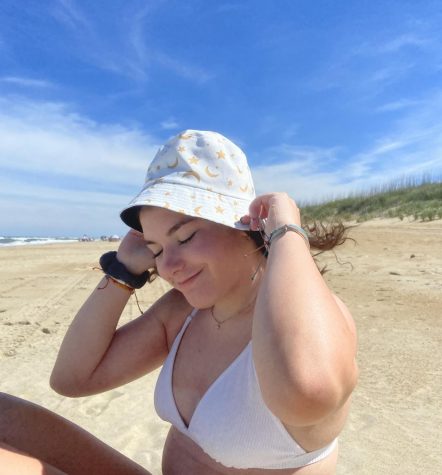
Rosie is a sophomore at Liberty and this is her first year on staff. Outside of school, Rosie enjoys reading, baking, and hanging out with her friends.




